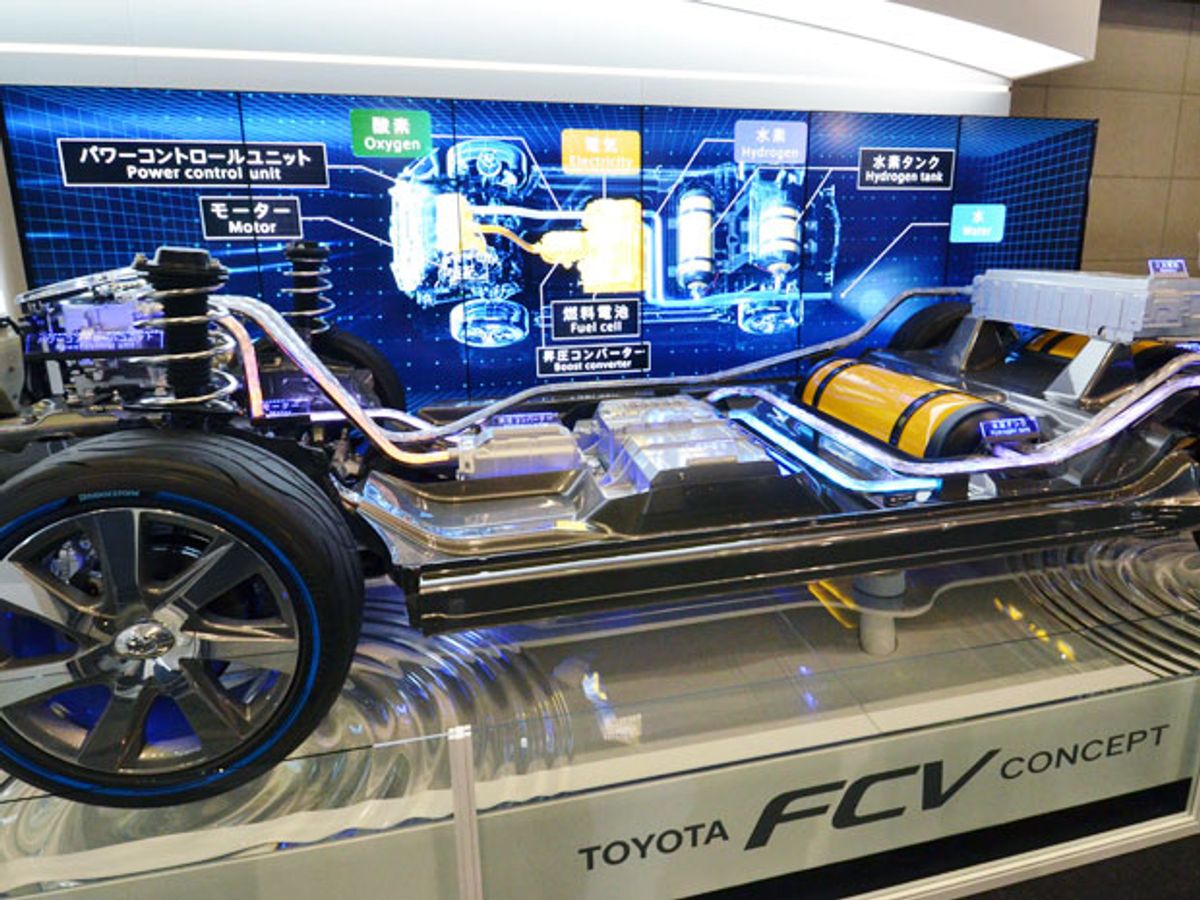Today's electric-drive cars rose on the back of battery technology, and no company knows this better than Toyota. Its Prius was the first serious electric-gas hybrid, and it got its watts from batteries—the metal-hydride chemistry, at first, and now the more advanced lithium-ion kind.
Last week, though, by letting its battery R&D alliance with Tesla Motors lapse, Toyota signaled that it is doubling down on the main alternative source of electric power. "The long-term play is going to be fuel cell," Jim Lentz, head of Toyota’s North American region, said at a Fortune magazine conference a few days ago.
Some press reports have drawn a false distinction between fuel cells and electric vehicles, or EVs. A fuel-cell vehicle is fact an EV because, like a battery vehicle, it stores chemical energy that is later released in the form of electricity. It's just that fuel cells can be refilled—with hydrogen—whereas batteries must be recharged.
But calling the thing a fuel cell makes it seem strange to many people, which is why it has scared off investors for so long, says Larry Burns, a professor at the University of Michigan and a former head of R&D at General Motors.
"If I could do one thing differently, I would never have uttered the word 'fuel cell,'" Burns says. "I would have called it a hydrogen battery—just another battery! From the car’s standpoint, you’re driving on electricity, whether you’re taking it out of a battery or a fuel cell stack. You need similar power electronics; motors; it's very quiet; there are no shift points."
Fuel cells were invented ages ago, and car companies have been looking seriously at them for decades, but only now are the technology and the market demand coming together.
The big advantage of fuel cells is their ability to pack a lot of energy into a light package, so the car doesn't need to lug as much weight and can therefore go a lot farther between refills. One disadvantage is their comparative weakness in providing peak power—the source of the gorilla-strong torque behind the rubber-burning acceleration in an all-battery EV like the Tesla's S Model.
So, even if fuel cells end up ruling the EV world, Burns says, expect them to be coupled, hybrid-style, with at least a small battery pack. "You don’t want to put peak loads on the [fuel cell] stack; it could put durability at risk," he says. "A lithium-ion power battery, much like you would have on a hybrid, makes sense."
As for the future, it begins next year. Hydrogen refueling stations are a-building in California and elsewhere, and Toyota plans to start selling a mid-size car powered by fuel cells in North America in 2015. Hyundai will, too, and other major auto companies working hard on the problem include Mercedes-Benz, Chrysler, Honda and General Motors.
Philip E. Ross is a senior editor at IEEE Spectrum. His interests include transportation, energy storage, AI, and the economic aspects of technology. He has a master's degree in international affairs from Columbia University and another, in journalism, from the University of Michigan.



